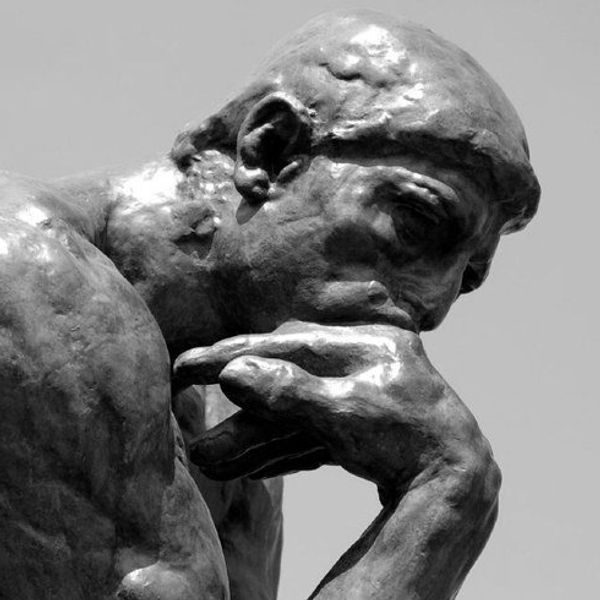Philosophers work mainly within the frameworks of three main branches of philosophy: Metaphysics, Ethics and Epistemology. There are other areas of study philosophers concern themselves with but, generally, they stick to the "big three." In this article, I will be broadly defining each of these areas of study, enunciating their importance and providing examples of relevant problems in each field.
Metaphysics is the study of what exists and the way or manner in which it exists. Philosophers ever since the Ancient Greeks have been working within the field of metaphysics. Does time flow forward, or is it stagnant? What is the nature of matter? Can we have free will? If God exists, then what kind of God is he? These are all questions that occupy the thoughts of metaphysicians.
I think the importance of practicing metaphysics lies in its ability to get us to think clearly about obscure topics. For instance, many of us believe the existence of matter is self-evident because physical objects play such a substantial role in our lives. However, many philosophers concede that we never experience physical objects directly, we only experience the sensible qualities they emit. In essence, when we experience an object or, perhaps, bundles of qualities, something external to us is imposing an image in our mind. This all happens in an instant when we experience something. But objects or sensible qualities are things that happen to us; they aren't stagnant entities. Perhaps it is more accurate to call our experience of matter or objects "events."
Ethics is the study of morality or moral theory. Moral philosophers are concerned with systematizing and defending modes of right and wrong conduct.
Currently, religion dominates peoples' moral life, rendering philosophical ethics generally obsolete and ignored. I am of the opinion that religion does a poor job in shaping how people treat each other and, therefore, fails as a moral paradigm. Historically, religion has created an atmosphere of intolerance and exclusion and has led to violence and warfare. Even the crudest ethical philosophy, I think, merits more virtue than religion and is, therefore, worth studying.
Virtue Ethics, expounded by Aristotle around 340 B.C., is concerned with living the best life by way of exercising the many human virtues: courage, temperance, liberality, magnanimity, etc. Virtue Ethics is probably the purest and most mundane of the moral philosophies because it emphasizes the importance of the individual without depreciating the value of the rest of humanity.
Epistemology is the study of knowledge and justification. Epistemologists study an array of topics, like the nature of knowledge, proper justification of beliefs and knowledge claims and the rationality of belief.
Take one glance at an introductory Epistemology book and you may begin to doubt everything you once believed or thought you knew. For me, skepticism was a natural side effect after becoming aware of epistemological concerns, and I gradually became more and more cautious of the testimony of others and of what I read in books or on the internet. Caution regarding belief and knowledge acquisition is, in my opinion, the most important thing to take away from this branch of philosophy.
Foundationalism, assumed by some philosophers, is the epistemological and theoretical attempt to establish fundamental starting points on which we can rest our beliefs. Take, for instance, the following belief: "I am currently wearing a t-shirt." This might seem like a silly example, but go ahead and try to provide a reason for that belief. You might suggest something like: "My experience tells me I am currently wearing a t-shirt." So far, so good.
Many of us would stop there, but philosophers like to take things a bit further. The next step would be to justify why we believe our experience is reliable in determining things about the external world, like the belief that I am currently wearing a t-shirt. This is certainly a more challenging task, and once a reason is provided for believing in the reliability of experience, we must further justify that reason. Thus, we fall into what philosophers call an "infinite regress," forcing us to perpetually provide reasons for reasons. Foundationalists, therefore, try to end this regress by discovering self-evident principles which will ultimately justify all beliefs or knowledge claims.
Other branches of philosophy include existentialism, philosophy of science, philosophy of language, aesthetics, philosophy of mathematics and much more. Philosophers concern themselves with just about every topic, including (naturally) philosophizing about philosophy, arguing its relevance in society. Philosophy is unlike any other academic field because of its entanglement with every subject, making it difficult to categorize. Even science was once called "natural philosophy." So where should one begin in their philosophical investigations? A safe bet is to start with the "big three" and see where that leads. You may just end up discovering something about yourself along the way.





















